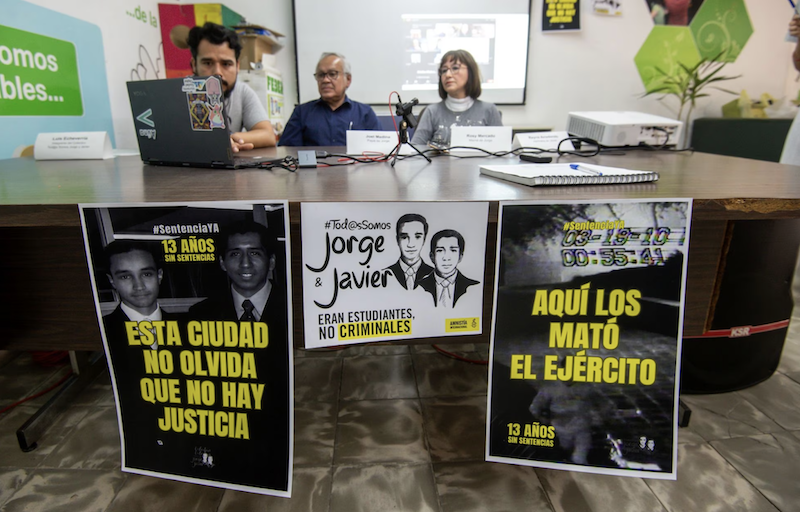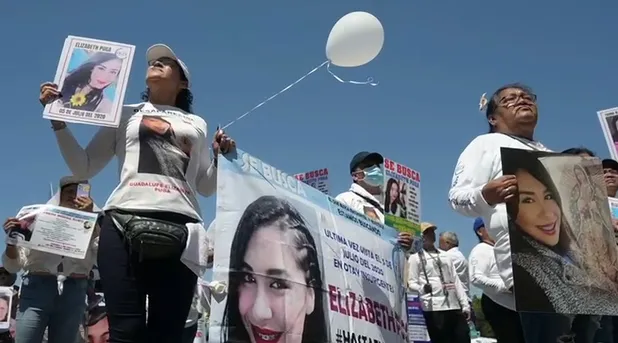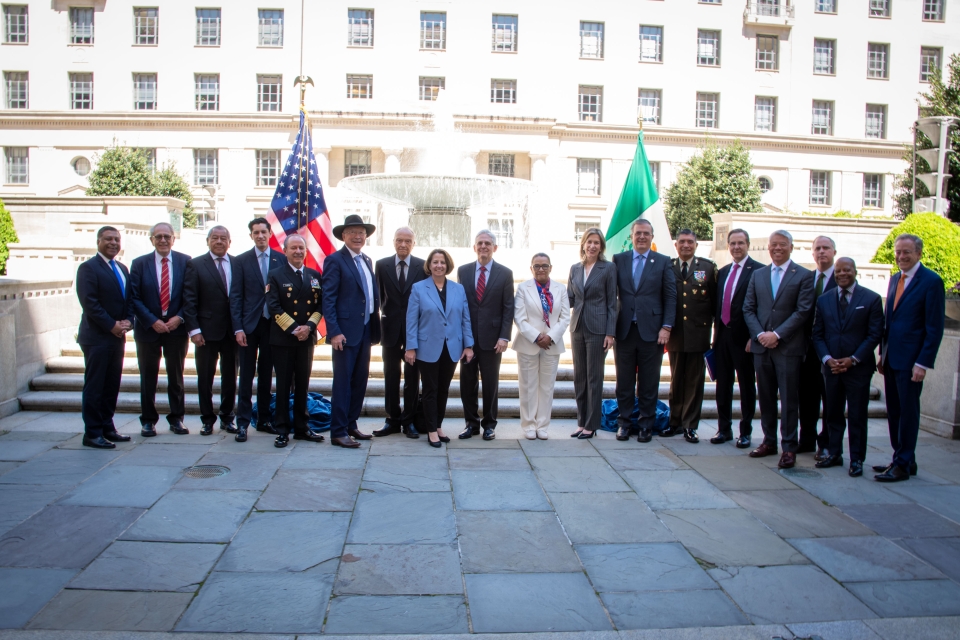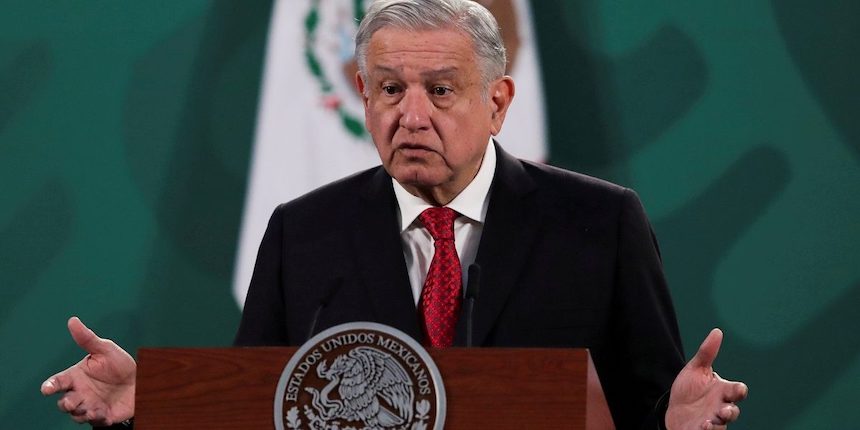
06/27/14 (written by cmolzahn) — Small steps have been made toward the extradition of two prominent Mexican citizens to the United States. Mexican courts have denied constitutional injunctions (amparos) to both former Tamaulipas Governor Tomás Yarrington (1999-2004) and founder of the now-defunct Guadalajara Cartel, Rafael Caro Quintero. The amparos leave the door open for the U.S. Department of Justice to pursue extradition requests for both men with its Mexican counterparts. Perhaps the biggest obstacle to a successful extradition process for Yarrington and Caro Quintero is that their whereabouts remain a mystery.
Yarrington faces a federal indictment unsealed last December in the Southern District of Texas, charged with conspiring to violate provisions of the Racketeer Influenced and Corrupt Organization (RICO) statute, alongside his alleged co-conspirator, Fernando Alejandro Cano Martínez, owner of a Mexican construction firm. The two also stand charged with conspiring to launder money, and making false statements to federally insured U.S. banks. Yarrington also faces charges of conspiring to violate provisions of the Controlled Substances Act, conspiring to structure currency transactions at a domestic financial institution, as well as separate bank fraud charges. Yarrington is accused of accepting large bribes from drug trafficking organizations operating in the border state of Tamaulipas beginning in 1998 in exchange for allowing the organizations to operate there, facilitating the smuggling of large amounts of cocaine from the Port of Veracruz into the United States. Cano stands accused of offering large bribes to Yarrington which included Texas real estate properties in front names for him, in exchange for government contracts for his business. Yarrington is also accused of using stolen public funds to purchase a Sabreliner 60 airplane in January 2005, for which he allegedly transferred $300,000 (USD) to a bank account in the United States. An additional $5 million pesos ($384,000 USD) were allegedly transferred to an account belonging to Cano in the spring of 2005, according to the indictment.
On June 12, a five-judge panel on Mexico’s Supreme Court (Suprema Corte de Justicia de la Nación, SCJN) roundly rejected Yarrington’s request for an amparo in his case, erasing hope that that judicial body would step in to avoid his extradition to the United States. Less than two weeks after, Proceso reported that U.S. authorities were already preparing witnesses and evidence for an eventual trial against the former governor. In addition to the previous charges, there are now allegations that Yarrington’s gubernatorial campaign was in part financed by drug trafficking organizations. Yarrington has been a fugitive since a Mexican judge ordered his arrest in August 2012.

Meanwhile, Rafael Caro Quintero’s release by Mexican authorities on August 9 drew immediate condemnation from U.S. officials who now are seeking to bring him to trial in a California federal court. Caro Quintero is one of the most important kingpins in Mexican history and, as a founding member of the now defunct Guadalajara Cartel, is considered one of the godfathers of Mexican drug trafficking. The fallout from Caro Quintero’s release was swift and apparent on both sides of the U.S.-Mexico border. Caro Quintero—who had 12 years remaining on his 40-year sentence—walked out of a Mexican federal prison after 28 years of incarceration, resulting from a 1985 conviction for the kidnapping and killing of U.S. Drug Enforcement Administration (DEA) agent Enrique “Kiki” Camarena, who had helped to dismantle a massive marijuana operation the year earlier, resulting in an estimated $2 billion (USD) in losses to Caro Quintero’s organization. He was also convicted of killing a Mexican pilot and two other Americans he falsely believed to be DEA agents. The three member judicial panel that ordered his release said that he should not have been tried in a federal court since the victim was not a diplomat or consular officer, a detail the court found sufficient for overturning the conviction. He promptly disappeared upon being released, and Mexican authorities have been thus far unsuccessful in locating him.
The U.S. Department of Justice called Caro Quintero’s release “deeply troubling,” while the White House issued a statement on August 11 saying, “We are deeply concerned by the release of Rafael Caro Quintero from prison in Mexico.” Under a Mexican double jeopardy law, though, an individual cannot be extradited to face charges for crimes for which he has already served time. For its part, the Mexican Government, which denies having had any prior knowledge of Caro Quintero’s release, scrambled to bring new charges against him, and issued a new arrest warrant against him after Mexico’s Supreme Court annulled the lower court’s amparo. However, in August following Caro Quintero’s release, Proceso reported that Mexico’s Attorney General’s Office (Procuraduría General de la República, PGR) had known about Caro Quintero’s appeal for two years, and did nothing to stop it.
Caro Quintero’s release came at a difficult time for bilateral law enforcement cooperation between the United States and Mexico, as President Enrique Peña Nieto has proven to be more reluctant than either of his two National Action Party (Partido Acción Nacional, PAN) predecessors to share information and allow the involvement of U.S. agencies in domestic organized crime operations. Moreover, the incident serves as a reminder of the corruption that has been endemic in Mexico. High-ranking Mexican police officers were implicated in Camarena’s murder, and U.S. investigators believed that Caro Quintero maintained ties reaching the upper levels of the Mexican government. Federal authorities are reportedly investigating the three judges who authorized his release, and suspect collusion by prison guards in expediting the process.
In December, Proceso published a letter from Caro Quintero via his attorneys, stating his case that he had already served time in a Guadalajara prison for the crimes in question. On June 17, a Mexican federal district judge denied an amparo against extradition to the United States stemming from these claims, clearing the way for the process. The petition had been filed by Caro Quintero’s attorney on his behalf. As such, the arrest warrant issued in a Federal District (Distrito Federal, DF) court on August 11, 2013 stands. Caro Quintero had requested the amparo on the grounds of Mexico’s double jeopardy statute, as he is being sought for a crime for which he already stood trial in Mexico. The U.S. Department of State is offering up to $5 million (USD) for information leading to the arrest of Caro Quintero, and he is also being sought by Interpol.
Sources:
“Rechaza SCJN atraer casos de Yarrington y Televisa.” La Crónica de Hoy. June 12, 2014.
“Mexico drug lord loses bid to block extradition.” Associated Press. June 17, 2014.




